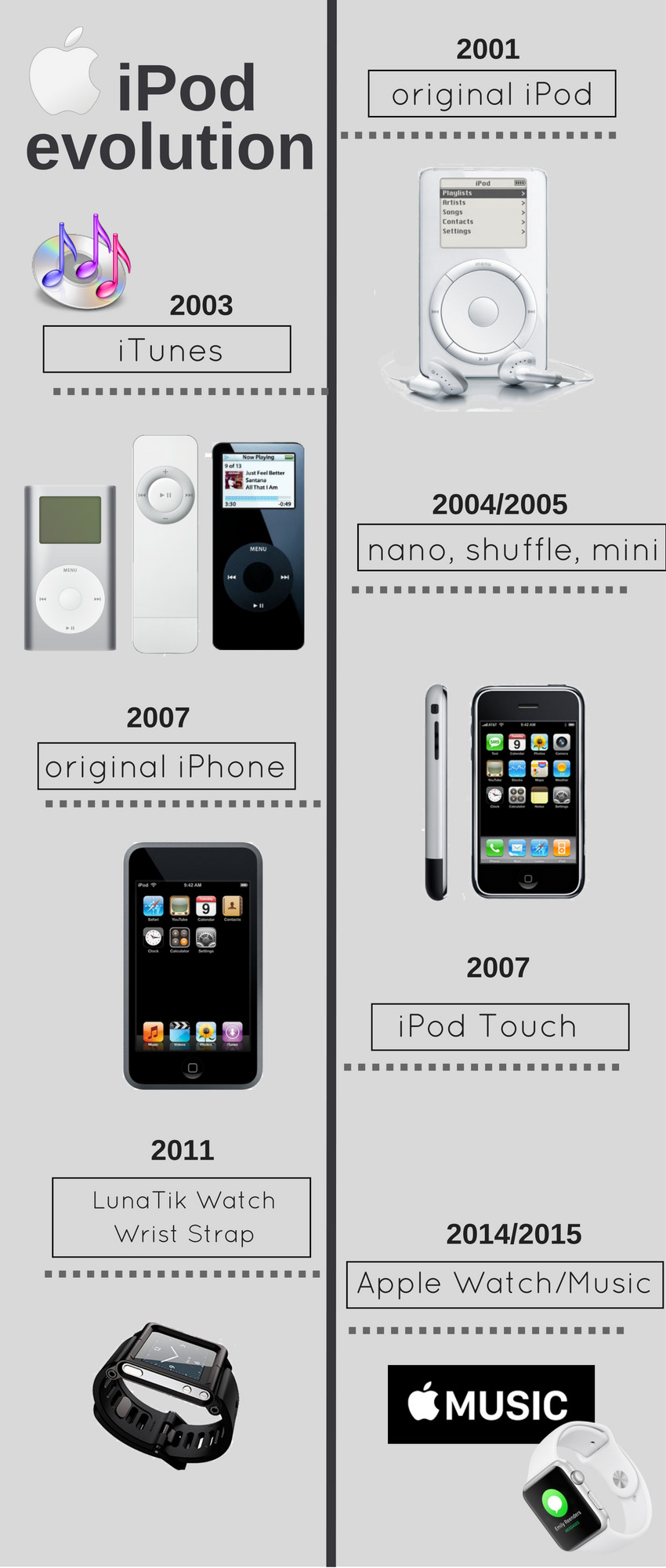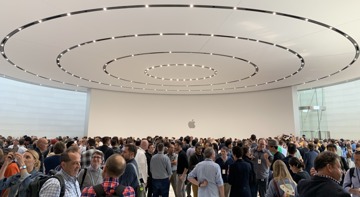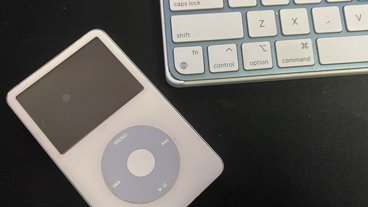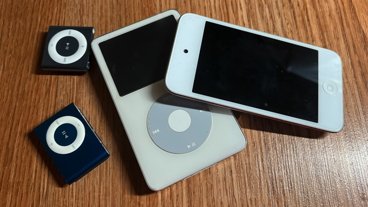In 2001, Apple unveiled a singular product that launched the company out of the niche PC market and started an evolution that morphed the company into the world-dominating presence we know now. That device was iPod.
Since its debut 15 years ago, iPod's music player capabilities have been integrated into smartphones and other emerging technologies, making the once top-selling device an almost extinct product. Yet, it was the iPod that ushered in the age of digital music, an idea Apple cofounder Steve Jobs marketed as "1,000 songs in your pocket."
Although it's forever etched in our collective consciousness as the first stepping stone for portable music players, iPod was a leap into the unknown for Apple. At the time, iPod came with a hefty $399 price tag and Mac-only connectivity using the FireWire interface, bold strategies from a company looking to break into a new market.
At first, consumers didn't take to iPod, and tech reviewers panned the device. Sales outside early adopters and the Apple faithful were anemic — but there were enough for the Apple that Jobs built to keep on.
Eventually, a market was born, helped along by the release of iTunes for Windows in 2003 and the iTunes Music Store.
If you're of a certain age, you'll remember the popularity of CDs and dodgy peer-to-peer music sharing sites. With the advent of iTunes, neither were required — just pick some songs, load them onto your iPod and your favorite music was made ultraportable. It delivered an unparalleled end-to-end solution for music consumption.
Sales skyrocketed, setting the stage for 15 years of iPod evolution. We saw an iPod mini in 2004, the shuffle in 2005 and nano in 2005. With a diverse product line, Apple was able to offer the idea of iPod at almost any price point.
Now, the silhouette ads and white earbuds are an iconic part of pop culture, along with the device itself. Even the podcast — named after the iPod itself — can thank the iPod for its existence.
Apple unveiled iPhone in 2007, another revolutionary product that ushered in the beginning of the end for iPod. With iPhone, not only could you have thousands of songs in your pocket, but also a mobile phone, camera, PDA, web browser, video player and more.
The iPod touch borrowed some of iPhone's technology, including a large multitouch display, and launched later that year, throwing the device line a bit of life-line.
The iPhone brought with it the age of the smartphone, and within a few years the need for separate music players was effectively nullified. Sales went from 55 million iPods per year in 2008 to just a fraction of that in recent years. Apple no longer breaks out iPod shipments into its own earnings category, instead lumping the product in with other accessories and miscellaneous hardware.
Apple's revolutionary music player has since been relegated to niche buyers focused mainly on finding a low-cost device for working out. The current shuffle and nano models remain small, compact and fairly inexpensive. There were also third-party inventions — like the LunaTik Watch Wrist Strap for the iPod Nano that was released in 2010 — that showed signs for the need for the iPod, and Apple itself, to push into other markets.
The death of the iPod Classic in 2014 signaled an end to iPod innovation.
With the unveiling of the Apple Watch in 2015, even the iPod models in the wild face extinction as runners not only have streaming music offerings while they run or swim, but also a wealth of additional services and benefits from the watches and the fitness apps they house. That year also saw the debut of Apple Music, an all-you-can-eat streaming service that might prove to be the nail in iPod's coffin.
However, for die-hard fans and those attached to the classic wheel design, there are longevity programs thought up by enterprising third parties. One example is the iFlash, a DIY kit that allows users to replace the internal hard drive in the iPod Classic with an SDHC or SDXC flash media card — giving up to a 128GB of capacity.
Although the iPod is reaching the end of its lifecycle, it's important to remember that it changed the way we listen to music. It was a revolutionary idea — being able to carry in your pocket thousands of songs delivered direct through iTunes — one that can easily be taken for granted.
So here's to you, iPod, on your 15th birthday! Thanks for revolutionizing the way we listen to music and helping us get rid of those clunky, awkward Walkmans.
 Ashley Wright
Ashley Wright







-m.jpg)






 Charles Martin
Charles Martin
 Christine McKee
Christine McKee
 Wesley Hilliard
Wesley Hilliard
 Malcolm Owen
Malcolm Owen
 Andrew Orr
Andrew Orr
 William Gallagher
William Gallagher
 Sponsored Content
Sponsored Content








18 Comments
I read somewhere that the term "iPod" was an Apple-owned trademark that was originally intended for an internet kiosk in public places. (E.g., I=Internet, POD=Workstation). That product didn't fly well, so they re-used it for this device. Perhaps a more apt name would have been mPod (M=Music). In which case we would be using the mPhone now.
Quite the evolution!
Back in the day I was using a program called Messer to record MP3s of streaming audio to Mp3 to save to CD. I did that every day so I could listen to my favorite radio show on the way home on an MP3 capable portable CD player. Back in my day, electronics sucked but we liked them!
Take the memes outta this article, and it's even shorter, and quite empty, but not so irritating.
I wish Dilger had written on this topic: historical context, insight, wit, and healthy sarcasm!
The iPod was proof that Apple and Jobs had the right ideas, understanding, and execution, and this article is incredibly weak. Is the author an Android user, or merely shallow?
I feel insulted that this is the best AppleInsider can do.
Points and details missed:
iPod was built using the tech ms tried to kill off in the 90's
iTMS was built using tech removed from dell
Jobs didn't design the iPod
Cook was responsible for all logistics - pattern of efficiency set
iPod set stage for Apple to change name
Nano pre-empted Watch
ms repeatedly tried destroying iPod
iTMS and iPod were directly responsible for introducing ms-entrenched to Apple's elegant user experience, such as me! :D
iPod profits were directly related to iPhone
The iPod app
The end of the iPod app with Music
The derived, vapid, superficial article as presented above completely fails to capture the resounding changes iPod brought to Apple, the music industry, the vaporware business model of ms, and millions of people, if not billions. This product was prelude to both iPhone and Watch, and deserves just a little more thought and acknowledgement, wouldn't you say?